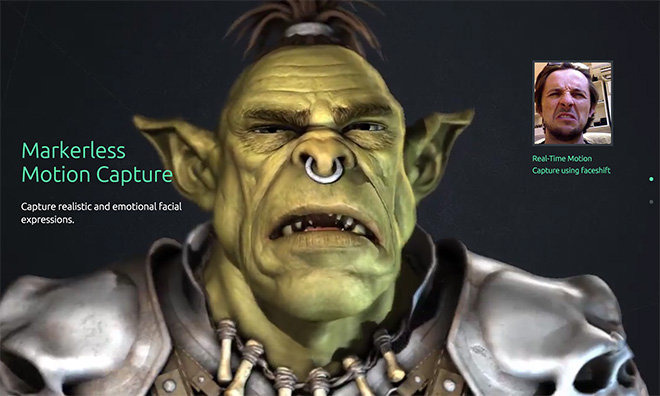Months after rumors claimed Apple was behind the mysterious acquisition of real-time motion capture technology firm Faceshift, the Cupertino, Calif., company confirmed the purchase on Tuesday, but declined to offer details on the matter.
Apple offered its usual boilerplate statement to TechCrunch, saying it buys smaller technology companies "from time to time," but does not normally discuss plans for acquired assets. The publication said it was able to get a confirmation after finding "sources and conclusive links" to Apple's involvement.
Initial reports in September cited documents showing Faceshift was indeed purchased by an unnamed outside company. One of the new corporate directors taking over control of Faceshift's IP, at least on paper, was an attorney from Baker & McKenzie, a firm known to work with Apple on quiet takeovers.
According to TechCrunch, a number of former Faceshift employees continued on at Apple and now work out of the company's European offices.
Before being purchased by Apple, Faceshift developed powerful facial recognition software that helped power advanced motion capture technology capable of real-time, low-overhead processing. Using 3D sensors and a camera, Faceshift's tech eschews the need for traditional motion capture rigging, specifically the stick-on reference markers often seen being worn by actors in animated or CGI-heavy live action movies. Most notably, the tech was used to map human-like gestures onto the faces of certain characters in the new "Star Wars" film.
Faceshift was known for a product called Faceshift Studio, which incorporated the firm's facial recognition software with support for Maya and Unity. Consumer-facing iterations were in development for Skype, though it appears that project has been shut down.
With the Faceshift buy, Apple continues to build out its portfolio of facial recognition technologies, one of the first being Swedish firm Polar Rose in 2010. The company also acquired Israeli company PrimeSense, collaborators on Microsoft Kinect hardware and software for Xbox, in 2013 and holds multiple patents in related fields.
Despite an apparent interest in the technology Apple has only dabbled in consumer product offerings, the most prominent being face-based image sorting in Photos. Future plans could include real-time chat animations for FaceTime, biometric security, new user interface designs and more, though Apple is expectedly mum on the subject.
 Mikey Campbell
Mikey Campbell







-m.jpg)






 Christine McKee
Christine McKee
 Marko Zivkovic
Marko Zivkovic
 Mike Wuerthele
Mike Wuerthele

 Amber Neely
Amber Neely
 Sponsored Content
Sponsored Content
 Wesley Hilliard
Wesley Hilliard










30 Comments
I'm assuming Apple will offer this capability to their app developers to make Apple an even more attractive option for games and other apps.
I'm assuming Apple will offer this capability to their app developers to make Apple an even more attractive option for games and other apps.
I would assume that you assume correctly.
I would presume to assume that this means improved selfies that allow you to look like a troll.
My conspiracy theory is that Apple didn't buy Faceshift to make orc faces, they want some future FaceTime-camera enabled device to read your face for emotional context.
This is amazing. I've been saying it but this gen's Apple TV isn't the big one they've been working on for years. It's just a quick refresh to keep up. We know they were taking too long and falling behind terribly. Can't wait to see what they can offer developers and consumers with this tech. Sounds like kids would have a blast with this if it came with ?tv.